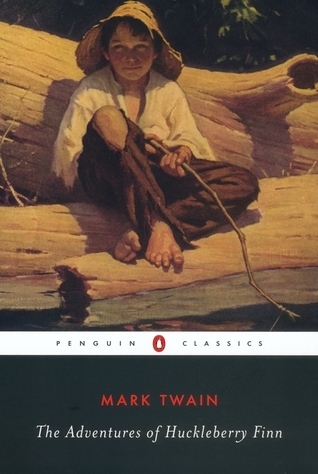The Adventures of Huckleberry Finn Book Summary
TL;DR
Mark Twain's 'The Adventures of Huckleberry Finn' follows a boy's journey down the Mississippi River alongside a runaway slave, addressing themes of racism, freedom, and human morality through a series of vivid adventures.
What is The Adventures of Huckleberry Finn about
Set in the pre-Civil War South, 'The Adventures of Huckleberry Finn' is an enduring classic that tells the story of a young boy, Huck Finn, who escapes from a suffocating home life to embark on an adventure down the Mississippi River. Huck travels with Jim, a runaway slave, and encounters various characters including feuding families, conmen posing as royalty, and Tom Sawyer's aunt, who mistakes him for her nephew. Through these escapades, Twain critiques societal norms, racism, and the moral dilemmas faced by individuals in a flawed society. The novel not only captures the essence of American life but also poses profound questions about slavery and freedom, making it a significant work in American literature.
The Adventures of Huckleberry Finn 7 Key Takeaways
Huck Finn's escape from his abusive father.
Huck's journey begins when he fakes his own death to escape from his abusive father, illustrating his desire for freedom and independence from societal constraints.
Meeting Jim on Jackson's Island.
While escaping, Huck encounters Jim, a runaway slave, and they form a friendship that challenges Huck’s ingrained prejudices and societal views, setting the tone for their adventures.
The feud between the Grangerfords and Shepherdsons.
Huck witnesses the absurdity of violence and entrenched hatred through the senseless feud between these two families, highlighting themes of honor and the consequences of longstanding grievances.
The conmen and their schemes.
Huck and Jim meet two conmen who claim to be a duke and a king, showcasing the gullibility of people and the moral decay present in society.
Huck's moral dilemmas regarding Jim's freedom.
Throughout their journey, Huck struggles with the societal belief that helping Jim is wrong, ultimately deciding to prioritize his friendship and loyalty over societal norms.
The climax at the Phelps farm.
The climax unfolds when Huck is mistaken for Tom Sawyer and faces a moral decision about revealing Jim's identity to save him, showcasing his personal growth.
The resolution and Huck's decision to reject civilization.
In the end, Huck chooses to reject the constraints of civilization, symbolizing his desire for freedom and his rejection of the prejudiced values of society.
Top The Adventures of Huckleberry Finn Quotes
- "All right, then, I'll go to hell!"
- "It's the taking on of the world that makes it worth living."
- "You don’t know about the real me, but you will soon enough."
Who should read The Adventures of Huckleberry Finn?
'The Adventures of Huckleberry Finn' is ideal for readers interested in classic literature, American history, and social justice themes. It offers valuable insights into the human condition, challenges to societal norms, and the pursuit of freedom, making it a rich source of inspiration and reflection.
The Adventures of Huckleberry Finn Best Reviews
- Mark Twain's masterpiece is not just a story of adventure, but a profound exploration of human nature and morality, making it an essential read for understanding America's past.
- Twain's use of dialect and vivid characters brings the American South to life, offering readers a rich tapestry of experiences that resonate with themes of freedom and humanity.
- A timeless classic that challenges societal norms and prejudice, 'The Adventures of Huckleberry Finn' remains relevant and thought-provoking, striking a deep chord with readers across generations.
People also liked these summaries
The Adventures of Huckleberry Finn FAQs
What is the main theme of Huckleberry Finn?
The main theme of 'The Adventures of Huckleberry Finn' revolves around the concepts of freedom, morality, and the critique of societal norms, particularly concerning race and slavery.
Is Huckleberry Finn suitable for young readers?
While 'Huckleberry Finn' is frequently taught in high schools, its themes and language may present challenges, making it more suitable for older students or those willing to engage critically with its content.
What makes Huckleberry Finn a significant work in American literature?
'The Adventures of Huckleberry Finn' is significant for its poignant exploration of race, identity, and morality, its innovative use of dialect, and its profound impact on subsequent American literature.
